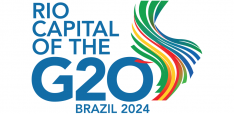How can Global Governance Adapt to Shifting Challenges?

Helen Clark examines trends in global governance and considers what is needed going forward to tackle issues beyond the capacity of individual nation states to resolve on their own.
Close to a century ago, the League of Nations was founded to promote world peace and co-operation. It was the first global organization with such a broad-based mandate, although sectoral organizations with wide reach date back to the mid-nineteenth century.
History records, however, that the League of Nations was not successful, among other things, in not being able to prevent the outbreak of the Second World War. The multilateral framework we know today was formed as that catastrophe neared its end – the United Nations in 1945 to promote peace, human rights, and development, and the Bretton Woods Institutions in 1944 in the economic and financial fields.
These groundbreaking institutions have many achievements to their credit. From the United Nations, for example, has come a substantial body of international law and norms across many fields, and much practical development and humanitarian work. The UN is credited by the UN Intellectual History Project as being an incubator of new and powerful ideas which have shaped policies at all levels.
In the peace and security realm, despite many tensions throughout the Cold War period and the buildup of substantial nuclear arsenals, war between major powers did not occur.
Yet while the post-war institutional framework has proved to be enduring, questions inevitably arise as to whether it is fit for purpose in this second decade of the 21st century. Where organizations do not reinvent themselves and as new challenges emerge, others will seek to fill the vacuum left by those which don’t adapt.
If the basic framework is sound, as I believe it is, then the focus should be on what needs fixing, and on the relationships between the structures established in the post-World War Two era and emerging institutions.
On global economic governance:
The G20 meeting at Leaders’ level emerged to fill a glaring gap in global economic governance. As the global financial crisis unfolded, no single institution was empowered to act to avert consequences which spread from financial markets in the north to the poorest nations on earth. While the G20 does not have formal power to direct global economic and financial regulation, when the decisions of a group of major economies representing 85 per cent of global GDP are carried over into formal institutions, they carry a lot of weight.
This in turn has raised issues of legitimacy, and so it has been encouraging over the years to see the G20’s growing willingness to reach out to both the United Nations and a much wider range of nations for input. Some G20 Chairs have also gone the extra mile to include the voices of the world’s poorest countries in their processes
With respect to the IFIs, there have been longstanding debates about representation and voice for emerging and developing economies. Agreement to the IMF’s 14th General Quota Review in late 2015, and its entry into force in January 2016, were welcome steps forward. The World Bank too has been pursuing reforms which aim to increase developing country voices in its governance.
On trade:
The multilateral spirit which saw the conclusion of the GATT Uruguay Round in 1993 and the launch of the World Trade Organization’s Doha Development Round in 2001 has yet to carry through to conclusion of the Doha Round. In these global trade negotiations, nothing is agreed until everything is agreed and there have been a number of sticking points.
The consequence is that less and less of the world’s dynamic trade is covered by global rules, and there is a proliferation of regional, sub-regional, and other trade agreements. Yet small and low income economies are particularly disadvantaged in negotiating with more powerful economies outside the multilateral framework. This gap in trade rules’ coverage and the growing inequity in trade governance needs urgent attention.
On development and governing the global commons:
In this area of global governance there is cause for optimism, especially following the phenomenal agenda-setting year of 2015.
That year saw agreement on the visionary 2030 Agenda for Sustainable Development and the associated Sustainable Development Goals; huge progress on tackling climate change with the Paris Agreement; a new global disaster risk reduction framework agreed in Sendai, Japan; and the Addis Ababa Action Agenda which updates the international financing for development framework.
Then, in 2016, the World Humanitarian Summit outcomes promoted more effective ways of working between humanitarian and development actors; HABITAT 1V in Quito proclaimed the New Urban Agenda; and new commitments were made at the first ever Global Sustainable Transport Conference convened by the UN Secretary-General in Ashgabat, Turkmenistan.
As well, the first UN Summit for Refugees and Migrants was held in New York last September. With the world witnessing a worse forced displacement crisis than that seen after the Second World War, the need for global agreement around support for the forcibly displaced is great. The New York Declaration calls for a comprehensive refugee response which sets out respective responsibilities of the UN, Member States, and civil society organizations.
 On challenges in the peace and security sphere:
On challenges in the peace and security sphere:
Since 2011, the world has witnessed a spike in the numbers of deadly conflicts. The list of troubled countries is long…and we must add to it those experiencing waves of terrorism fueled by violent extremism which has global reach.
The UN has found it hard to address these new waves of conflict. Its older response of dispatching peacekeepers when there was a peace to be kept is often inadequate – peacekeepers may be sent where there is no peace to keep, and may be neither equipped to act nor have a mandate to act to stem the violence. In a number of the currently raging conflicts, there is no mandate for UN peacekeepers to be present at all.
It is therefore important for the UN to find ways to respond more effectively to what is driving the current spike in the numbers of conflicts. Reform of the veto power at the Security Council could help, but seems unlikely in the near to medium term. Equally distant is reform of the permanent membership of the Council. A failure to update the UN’s governance to recognize geopolitical changes of the last seven decades affects perceptions of it.
There are bright spots though – take the Security Council’s backing of the actions of Member States of ECOWAS – the Economic Community of West African States – which worked so hard to ensure a peaceful transfer of power in The Gambia.
Another promising area of activity is the current focus at the UN on how to sustain peace. We need big picture thinking here - peace is built and sustained through long term developmental processes. It is surely no accident that many states which lapse into deadly internal conflict have high levels of poverty and inequitable distribution of wealth, governance which is not inclusive and does not reach all corners of the land, and an absence of the rule of law. These development deficits cannot be remedied over night, but tackled they must be if we are to build a more peaceful world. The new 2030 Agenda for Sustainable Development links all these issues.
Where now for global governance?
Responding to the magnitude of the challenges our world faces requires reinvigoration of the multilateral institutions which were established to solve our shared problems.
This is happening to a certain extent in the economic and financial arenas, and around sustainable development and governance of the global commons. While the global development agendas have moral, not legal force, it is encouraging to see so many countries volunteering to be early presenters of national progress reports on the Sustainable Development Goals. Those reports come to the purpose-designed High Level Political Forum on Sustainable Development convened under the auspices of the UN’s Economic and Social Council – this reform has breathed new life into the role and relevance of ECOSOC and is a welcome sign of willingness to change. As well, the speedy coming into force of the Paris Agreement on Climate Change suggests that there has been a broad will to see global governance succeed in that area.
The human rights pillar of the UN has also broken new ground since the formation of the Human Rights Council in 2006 and the establishment of its Universal Periodic Review Mechanism. All Member States are expected to present national reports on the status of human rights in their country. Nonetheless, from shrinking civic space to repression of freedom of speech and all the way through to war crimes and crimes against humanity, there are many current assaults on human rights. The need to uphold human dignity is as urgent an imperative as it ever was.
While effective global governance in the peace and security realm is struggling, that should not stop Member States moving ahead with progressive agendas for addressing the root causes of conflict and using all available mechanisms to build and sustain peace. The 2030 Agenda boldly asserts that there can be no sustainable development without peace, and no peace without sustainable development. Success in implementing the 2030 Agenda will have long term benefits for people and planet, peace and security, and for the legitimacy and credibility of the multilateral system.
Helen Clark is the Administrator of the United Nations Development Programme and the former Prime Minister of New Zealand. The piece has been adapted from a speech the Administrator gave in Dubai recently at the 5th World Government Summit.
Photo credit: oschene via Foter.com / CC BY-NC-SA


